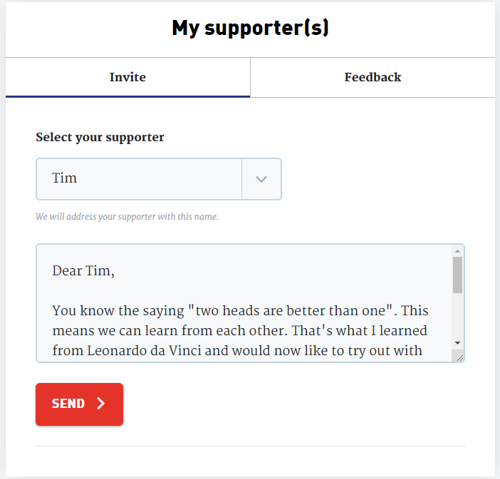Support personal development
Let's say you're Monique's managing director. She's experiencing problems with her time management. She doesn't know how to prioritize, she doesn't meet deadlines, and her planning is often unrealistic.
Would you encourage her to take a course on the subject? Good thinking!
But what do you and the rest of your team do in the meantime? You, as her managing director, and/or her team members, play a very important role in her personal development. If you aren't involved, it will be difficult for her to:
- understand what the issues are that you or her team members struggle with;
- practice new skills and methods;
- let go of old habits.
"Look who went back to school..."
Someone who completes a course, is usually very excited to apply the newly acquired skills. "From this moment on I am going to do things differently!" Monique will probably also have this mindset when she comes back from her training. However, without support from you and her team members, she will probably fall back into old habits in no time. And before you know it, she's forgotten all about her ambitions and goals and not as keen anymore to 'do things differently'. And being in control of her time will remain a problem for her.
But how?
Behavioral change is more effective with help from people close to you. Not only does it help you to gain a different perspective of your approach, it also shows your blind spots. It shows you how others interpret your behavior. Changing your behavior is easier when you share what you want to change and what you are going to do about it. When you are confronted with a challenging situation, you may need some encouraging words or positive confirmation from your 'supporters'
Asking feedback from a suppporter or your peers requires some effort and time. Just remember that feedback and social support are extremely effective when it comes to learning new skills.
The supporter tool
New Heroes has made learning together extremely easy with the incorporated 'supporter tool'. Each course offers the option to include your so-called supporters. Friends, family members, your managing director. Let them know when and why you started on this course, indicate what you need from them in order to achieve your goals, and request feedback on your assignments and improvements.

Sharing assignments and asking for online feedback is incorporated in all online courses. A supporter receives an e-mail with a link to the assignment. He/she can select different options:
a) I've already given feedback, using a different form of communication
b) I will schedule time in my agenda to give feedback later, and
c) I do not want to give feedback.
Feedback from team members and/or supervisors will allow Monique to improve. Co-workers will notice behavorial changes immediately. The subject will be easier to discuss and addressing the behaviour will become more natural. The entire team will benefit from Monique's personal growth and development. It might even rub off on others and stimulate them to tackle other business or personal issues.
Want to know more about the supporter tool?
Under frequently asked questions (FAQ) you will find the answers to the following questions.
- What is a supporter?
- Who can I ask to be my supporter?
- How do I work with a supporter?
- What can the supporter see?
- Why would I invite a supporter?
- My supporter isn't responding to my invitation.
- Does a supporter need a New Heroes contract?
Have you been asked to become a supporter? You can find answers to your questions here.
You can also contact us.
¹ Bron: Botke, J. A., Jansen, P. G., Khapova, S. N., & Tims, M. (2018). Work factors influencing the transfer stages of soft skills training: A literature review. Educational Research Review, 24, 130–147. https://doi.org/10.1016/j.edurev.2018.04.001













Personal development is a group effort
The true success of an online course is visible in every day practice. Participants can be very enthusiastic about a course, but if they do not apply what they learn, it's useless. Research has shown that social support is one of the four key factors in learning and applying new skills and improving personal performance.